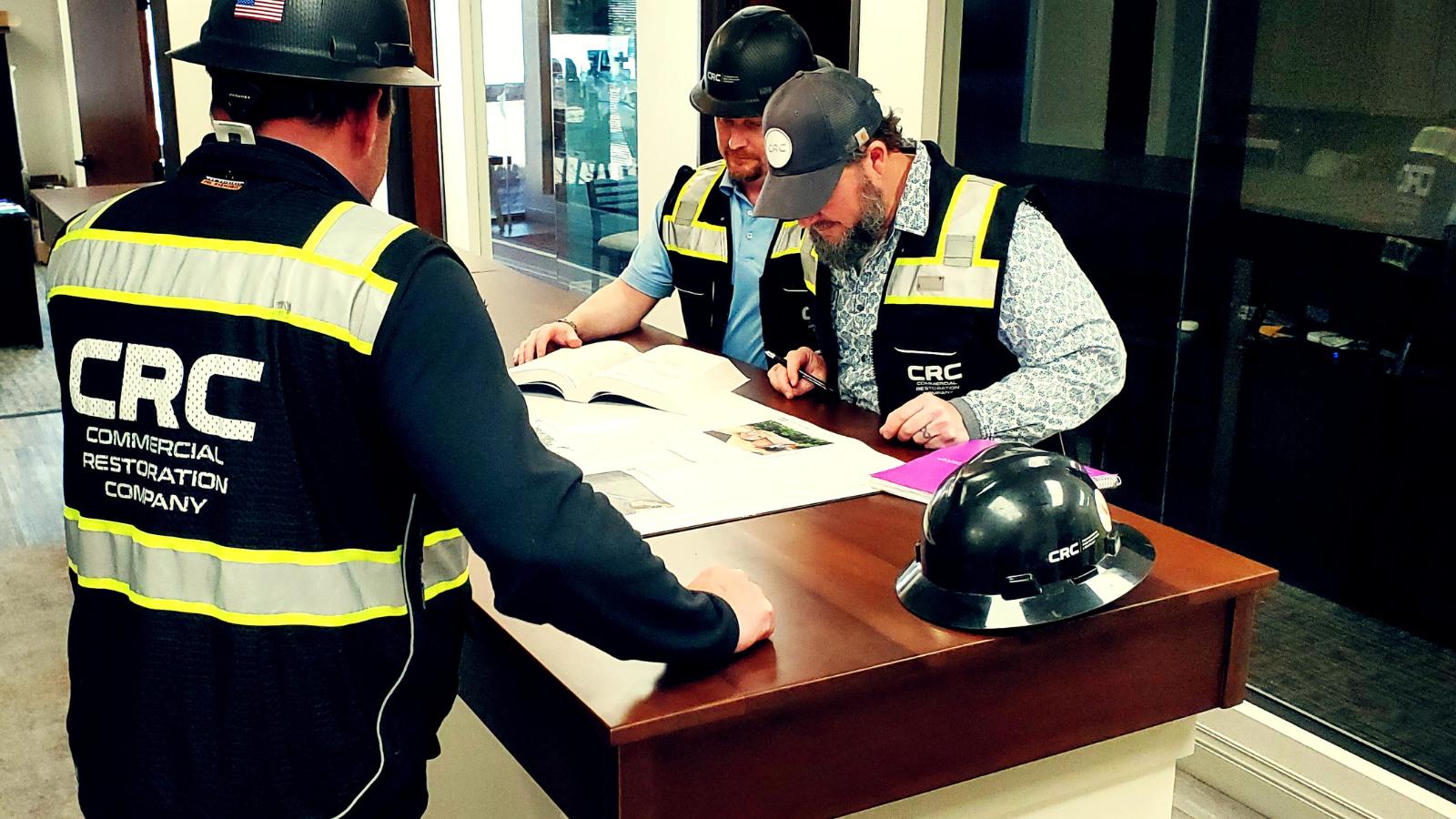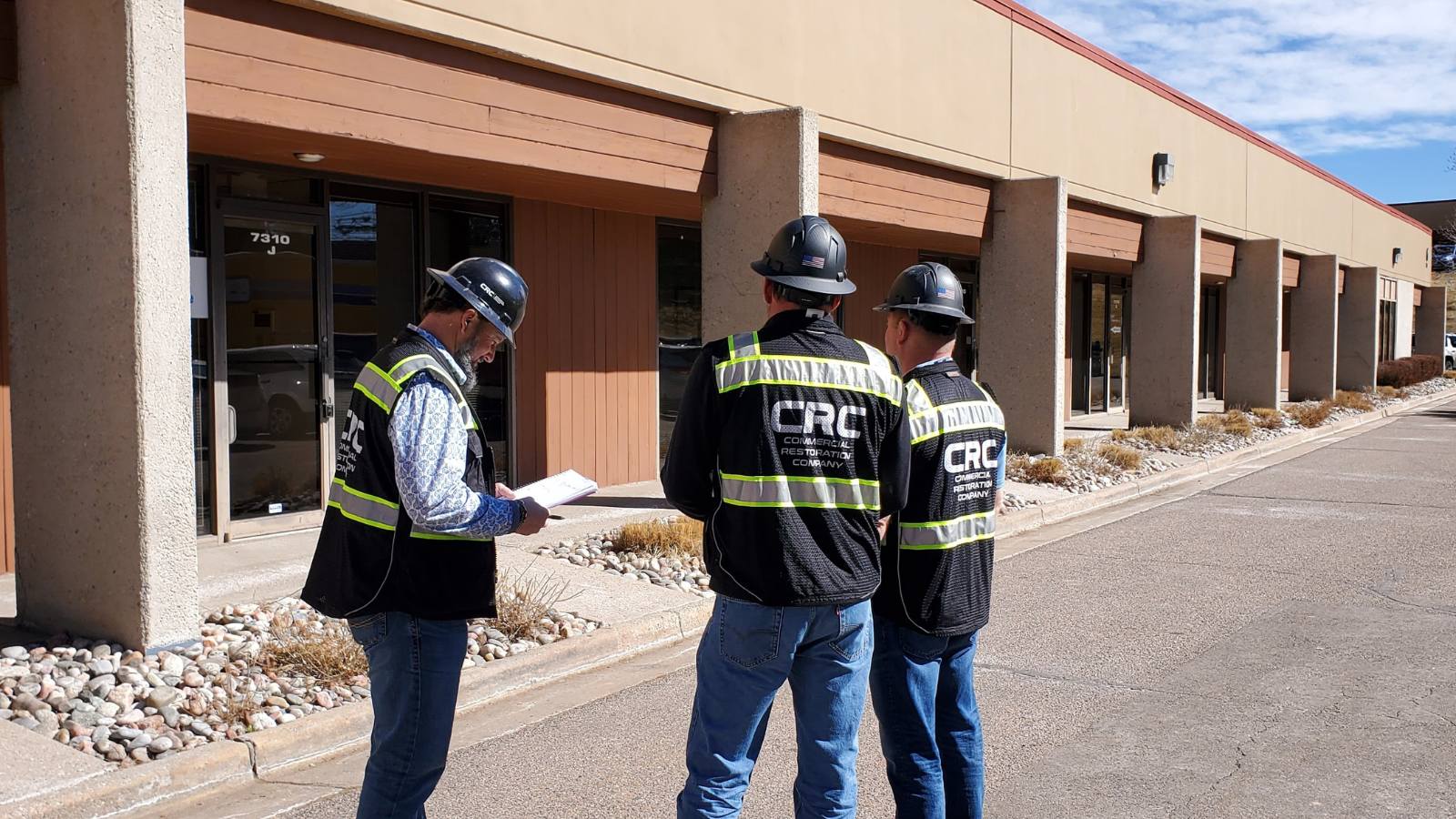How to Choose the Right Restoration Company
Experiencing a fire, flood, or other disaster is stressful, how to choose the right restoration company shouldn’t be. At CRC, we that know losing...
5 min read
Sarah Chadwick
June 23, 2023

When it comes to repairing property damage, it's crucial to choose the right type of contractor. The two main types of contractors are general contractors and restoration contractors, and they differ significantly in their expertise, services, and approach. While general contractors can handle various construction projects, restoration contractors specialize in repairing damage caused by disasters, such as fire, water, mold, and storms. Depending on the nature and severity of the damage, choosing the wrong type of contractor can lead to poor outcomes, delays, and increased costs. In this blog post, we'll explore the key differences between general and restoration contractors to help you make an informed decision.
General contractors possess a broad range of skills and experience in different construction areas, such as carpentry, plumbing, electrical, and roofing. They have the ability to oversee entire projects from start to finish, including designing plans, obtaining permits, managing subcontractors, and ensuring compliance with building codes. Their expertise lies in creating and renovating structures, making them ideal for various construction projects. However, their expertise in restoration and remediation is limited, and they may lack the specialized training and equipment required to handle severe damage caused by disasters such as floods, fires, or storms.
On the other hand, restoration contractors have specific training and certifications in assessing, mitigating, and repairing disaster-related damage. They often hold industry-recognized certifications, such as those from the Institute of Inspection, Cleaning, and Restoration Certification (IICRC) or the Restoration Industry Association (RIA), which demonstrate their commitment to maintaining high standards in their field. This specialized knowledge enables them to accurately identify the extent of the damage and implement the most effective restoration methods.
Restoration contractors also use state-of-the-art technology, such as moisture meters, infrared cameras, hygrometers, air scrubbers, and dehumidifiers, to detect and eliminate moisture, mold, and other contaminants. These advanced tools allow them to perform their tasks efficiently and thoroughly, ensuring that your property is restored to a safe and healthy condition.
Furthermore, restoration contractors often work closely with insurance companies, ensuring a seamless and hassle-free claims process for property owners. Their familiarity with insurance procedures and requirements allows them to provide accurate documentation, navigate the claims process efficiently, and advocate for the property owner's best interests.
General contractors offer a broad range of services, catering to various construction needs such as remodeling, renovation, additions, and new construction. Their expertise lies in building and renovating structures according to the client's requirements and preferences. While they may also offer some restoration services, such as fixing minor water leaks or smoke damage, it's important to note that their primary focus remains on new construction. As a result, they may not have the necessary resources, specialized equipment, and expertise to handle large-scale disasters such as floods or fires, which could lead to inadequate restoration efforts.
Restoration contractors, on the other hand, specialize in emergency response and are equipped to handle all aspects of restoration with precision and efficiency. Their services include water extraction, drying, structural repairs, and content cleaning, ensuring that your property is restored to its pre-damage condition. They are trained to address various types of damage, such as those caused by water, fire, mold, and storms, making them better suited to manage disaster recovery projects.
In addition to their expertise in handling different forms of damage, restoration contractors can also provide temporary solutions, such as board-up, tarping, and shoring, to prevent further damage to the property while the restoration process is underway. These temporary measures are crucial in stabilizing the structure, protecting it from weather elements, and preventing unauthorized entry, ultimately saving both time and money in the long run.
General contractors usually follow a linear approach to construction, starting with the design and ending with the final inspection. This methodical process allows them to plan and execute projects systematically, ensuring that all aspects of the construction are completed according to the client's specifications. However, they might not have the same level of urgency or flexibility when it comes to emergency situations, as their primary focus lies in new construction and renovation projects.
Restoration contractors, on the other hand, operate under a different model known as the restore-first approach. This approach prioritizes safety, speed, and efficiency, recognizing the time-sensitive nature of disaster recovery and the need to mitigate further damage as quickly as possible. Restoration contractors respond promptly to emergencies, often arriving on-site within hours of the initial call, and immediately begin the process of assessing and stabilizing the property.
In addition to their rapid response, restoration contractors also handle the extensive paperwork and documentation required by insurance companies. They meticulously track and record all restoration activities, ensuring that property owners have the necessary information to support their insurance claims. This attention to detail can be invaluable during the claims process and helps ensure that property owners receive fair compensation for their losses.
The restore-first approach emphasizes mitigating the damage as soon as possible, rather than waiting for the entire scope of work to be completed. This strategy not only minimizes secondary damage but also reduces the overall duration of the restoration process, allowing property owners to return to their homes or businesses more quickly. Restoration contractors work closely with insurance adjusters and property owners to develop a comprehensive restoration plan that addresses both immediate needs and long-term recovery goals.
General contractors' pricing structure is usually based on the project's scope and complexity, and they may charge a fixed fee, hourly rate, or percentage of the total cost. However, they may not have the same level of transparency and accountability as restoration contractors when it comes to tracking expenses, managing change orders, and complying with the insurance company's requirements. This lack of transparency can sometimes lead to unexpected costs or delays in project completion.
Restoration contractors, on the other hand, use a standardized pricing system, such as Xactimate, which is widely accepted by insurance companies and ensures that the pricing is fair, consistent, and verifiable. Additionally, restoration contractors may also use time and materials pricing, providing a more accurate estimate of the project's overall cost. The costs of restoration may seem higher than that of general contracting, but there are several factors to consider that justify this difference.
Firstly, restoration contractors possess specialized knowledge in dealing with various types of property damage, such as water, fire, and mold. Their expertise allows them to accurately assess the extent of the damage and recommend the most effective restoration methods. This expertise can save time, prevent secondary damage, and ensure that the property is restored to its pre-damage condition, ultimately saving money in the long run.
Another factor to consider is that restoration contractors are on call and respond 24/7, whereas regular general contractors do not provide this level of availability. This around-the-clock service means that restoration contractors can address emergencies promptly, minimizing any further damage to the property and reducing the overall restoration timeline.
Lastly, restoration contractors often invest in specialized equipment designed specifically for disaster recovery and restoration work. This equipment enables them to efficiently complete tasks that general contractors may not have the tools or knowledge to perform, resulting in a more thorough and effective restoration process.
In summary, choosing the right type of contractor to repair your property damage can make a significant difference in the outcome, cost, and timeline. While general contractors are versatile and can handle various construction projects, they may not have the necessary expertise, equipment, and resources to handle severe damage caused by disasters. Restoration contractors, on the other hand, specialize in restoring damaged properties and have a unique set of skills, certifications, and technology to ensure that the restoration process is efficient, safe, and effective. As a risk manager, property manager, or insurance adjuster, it's essential to understand the differences between these two types of contractors and choose the one that can provide the best value for your clients or organization.

Experiencing a fire, flood, or other disaster is stressful, how to choose the right restoration company shouldn’t be. At CRC, we that know losing...
.jpg)
GREENWOOD VILLAGE, COLORADO, Feb. 10, 2025 – Commercial Restoration Company (CRC), a leading national provider of commercial restoration and...

GREENWOOD VILLAGE, COLORADO, Dec. 20, 2024 – Commercial Restoration Company (CRC), a national leader in restoration and reconstruction services, is...